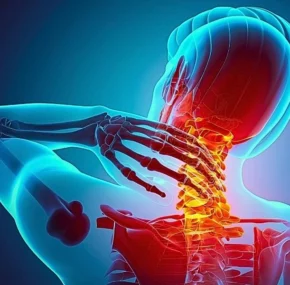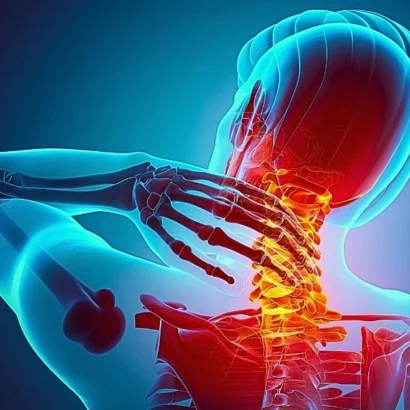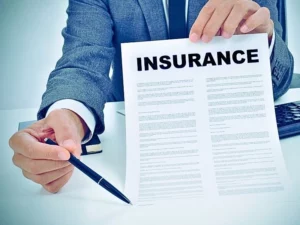The average payout for nerve damage after a car accident can vary. Every case is unique, and the amount of compensation you receive will depend on the factors related to your situation. This includes the severity of your injuries, how they impact your daily life, and the losses you experience as a result of your damages. For nerve damage claims, settlements typically range between $15,000 and $100,000, but your claim could be lower or higher than these amounts.

Average Payout for Nerve Damage
Determining an average car accident settlement amount for nerve damage cases can be challenging due to the unique factors involved. Generally, the severity of the injuries sustained will determine the amount of compensation that can be received in a car accident settlement. For mild to moderate nerve damage, settlements may range from a few thousand dollars to five figures. However, in more serious cases, settlements can exceed $100,000, and even reach into the millions, for extreme injuries that have resulted in life-altering effects. The amount of compensation that you receive will depend on the extent of your nerve damage and how it has impacted your life.
Factors That Influence a Car Accident Claim’s Value
The settlement value of a nerve damage case is determined by factors such as injury severity, medical expenses, pain and suffering, liability, and insurance coverage.
Severity of the Injury
When someone sustains an injury, its severity refers to the amount of physical pain, medical care, and permanent damage he or she suffers, and also how his or her way of life changes. Factors indicating the severity of a nerve damage injury include:
- The level of pain caused by the nerve injury and the frequency of its occurrence.
- The effectiveness of medical care in reducing or eliminating nerve damage symptoms.
- The impact of nerve injury on the victim’s daily functions, work, or hobbies.
It is important to evaluate each case individually, as nerve damage can vary greatly in terms of severity. For instance, let’s say an athletic person was in a car accident and sustained an injury. Before the accident, the person was committed to physical fitness. However, after the accident, he or she started experiencing ongoing and chronic pain. If the pain is so severe that it permanently impairs his or her ability to exercise, it would have a lasting or permanent affect on the victim’s life, and be considered a serious injury.
On the other hand, suppose someone experienced moderate pain after an automobile accident, but the pain was successfully treated with physical therapy. In that case, it would not be considered a severe injury. A more severe injury is more likely to receive higher compensation than a less severe one.
Nerve damage may include spinal cord injuries, which is one of the 6 types of catastrophic injuries. If your injury is severe enough to be catastrophic, your claim will be far higher.
Cost of Medical Treatment
All medical treatment expenses can be claimed as damages, including future medical costs. This is particularly vital for people who have suffered severe injuries and are expected to have long-term damage. Medical treatments that can be covered in a personal injury claim are surgery, prescription medicines, medical imaging (such as x-rays), hospital and doctor’s bills, ambulance fees, and home care. If the injury involves nerve damage that requires long-term care, the settlement payout is likely to be higher.
Pain and Suffering
Pain and suffering refers to the physical and emotional distress caused by an injury. Physical aches and pains, mental anguish, and diminished quality of life are some examples of pain and suffering. Unlike a doctor’s bill, non-economic damages, like pain and suffering, are difficult to quantify. For example, permanent paralysis or disfigurement cannot be included in a victim’s medical expenses, but they can be claimed under pain and suffering. It is important to consult with an attorney to ensure that you receive the full amount of damages for pain and suffering.
Clear Liability
Liability for an accident imposes both the legal and financial responsibility for the accident and the damages that resulted from it.
A crucial consideration in valuing your claim is the probability of finding the other driver at fault in court. Some instances have obvious liability, such as when a driver is struck while stopped at a red light or parked in a parking lot. In other cases, particularly those involving multiple cars, liability may not be as clear.
Proving liability is dependent on evidence. You must provide proof that successfully demonstrates the other driver was responsible for the car accident that resulted in your nerve injury. Therefore, the stronger your evidence, the higher your compensation is likely to be. An attorney will know how to determine liability in a car accident.
Amount of Insurance Coverage
The amount of insurance coverage available is another factor in determining the settlement for a nerve damage injury caused by a car accident. Normally, a car accident claim will first seek compensation from the at-fault driver’s auto insurance policy. Depending on the situation, a single insurance policy may be sufficient to cover all damages. However, there are cases where the at-fault driver’s policy limit is not enough to cover all damages. In such situations, you may have to file a lawsuit.
How Nerve Damage Impacts a Victim’s Life
Nerve damage is caused by trauma that stretches, compresses, or breaks the nerves, or a pinched nerve. The severity of nerve damage can vary. Nerve damage resulting from a car accident may not be immediately visible, but it can produce lingering and debilitating impacts. Symptoms of nerve damage vary depending on which nerve is affected and whether the damage impacts one nerve, several nerves, or the whole body.
Pain and Numbness
Tingling or burning sensations in the arms and legs can be an early indicator of nerve damage. These sensations often begin in the toes and feet and may be accompanied by deep pain, which frequently occurs in the feet and legs.
As a result of this nerve damage, you may experience a loss of feeling in your limbs. This can make it difficult to notice when you’ve stepped on a sharp object, touched something that is too hot or cold, or developed a small blister or sore on your feet.
Numbness can also affect your balance and make it harder to tell where your feet are going.
Muscle Problems
When nerves get damaged, it can become difficult to control muscles, which may lead to weakness. You may experience issues moving a specific part of your body, or you may fall due to buckling legs or tripping over toes.
Simple tasks, like buttoning a shirt, may become challenging, and you may also observe muscle twitching or cramping. Furthermore, your muscles may become smaller as well.
Problems With Body Organs
Individuals with nerve damage may experience difficulty with digesting food. Symptoms may include feeling full or bloated, heartburn after consuming small amounts of food, vomiting undigested food, and either loose or hard stools. Additionally, some individuals may experience difficulty swallowing.
Nerve damage to the heart can cause dizziness or fainting upon standing. Angina is a warning sign of heart disease and heart attack. However, nerve damage may mask this warning sign.
Other Symptoms of Nerve Damage
Other symptoms of nerve damage may include:
- Men may experience difficulties getting or maintaining an erection, while women may face issues related to vaginal dryness or achieving orgasm when suffering from nerve damage.
- Certain individuals may find it challenging to recognize when their blood sugar levels drop too low.
- Problems with the bladder may manifest as urine leakage, difficulty sensing when the bladder is full, or inability to empty the bladder.
- Irregularities in sweat production may lead to challenges in regulating body temperature.
How to Maximize Your Car Accident Settlement
There are steps that you can take to maximize your car accident settlement.
Gathering Evidence to Support the Nerve Damage Claim
After an accident, it’s important to gather as many facts as possible to give your personal injury claim the best chance of success. This includes physical evidence, witness statements, documentation, and photographic or video imagery. It’s easy to forget details in the aftermath of an accident, so it’s important to safely record as much information as soon as possible.
If you’re unable to do this, ask a friend, relative, or colleague to gather information from the scene for you. Even basic details can be used to build a strong case and may help you remember something important later.
Physical evidence are tangible or visible items, including damaged clothing, tail lights, pavement, tire tracks, and skid marks, can establish fault and corroborate injuries. Record visible evidence digitally and keep tangible evidence intact. Photographic or video evidence is convincing if authenticated. Witness testimonies should be recorded, and their contact details noted.
Documenting Medical Records and Expenses
You should keep all documents related to the incident. These documents could include hospital bills, medical reports, and receipts for any expenses incurred because of the incident. Such documents can help to establish liability, link your injuries to the accident, and document the severity and extent of your injuries. They can also provide evidence to determine the monetary value of your claim.
Calculating Total Damages and Losses Accurately
When filing a claim, you can request compensation for both economic and non-economic damages. The economic damage category covers financial losses, while the non-economic category addresses non-tangible and non-financial injuries.
In a nerve damage claim, there are a few types of economic compensatory damages that are the most common. These include medical bills (such as hospital visits, ambulance fees, doctor’s appointments, imaging and blood tests, physical therapy, prescription medications, medical devices, and other expenses), lost wages (for the amount of time taken off work to recover, often including benefits that would have been accrued during that time period), and lost earning capacity (if the injury caused a permanent disability that prevents a return to the same position or to a position of equal earning potential).
Calculating economic damages involves adding up medical expenses already incurred as well as earning lost and calculating future medical expenses and loss of income likely to be incurred based on your medical prognosis.
Non-economic damages, on the other hand, cannot be assessed by adding up bills. Non-economic losses are much less concrete. Most personal injury attorneys employ a formula (such as the multiplier method or daily rate method) that helps put a numerical value on these life-changing losses.
Non-economic damages in a personal injury case might include pain and suffering, loss of enjoyment of life, disfigurement, emotional anguish, permanent disability, damage to reputation, loss of consortium, and other emotional losses related to a loved one’s passing in a wrongful death case.
Hiring an Attorney
If you’re looking to get the maximum compensation for your claim, hiring a car accident lawyer is in your best interests. Gathering evidence and presenting it in the best possible way requires skill. An attorney will know what types of evidence are most relevant and how to collect and present it in a way that proves liability and shows the full extent of your damages.
Attorneys also have experience in calculating the value of your damages based on factors like permanently reduced earnings capacity and future medical expenses. They can put a number on non-economic damages, which can be difficult to do without prior knowledge of how to do so. Your attorney can help you calculate the full value of your damages.
An attorney will know how to communicate with insurers, giving you the best chance of a good settlement through evidence-based demands and negotiations with the insurance company if necessary. If the situation calls for it, an attorney can also take your case to court.







